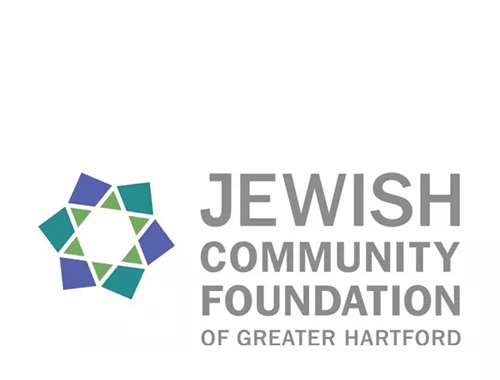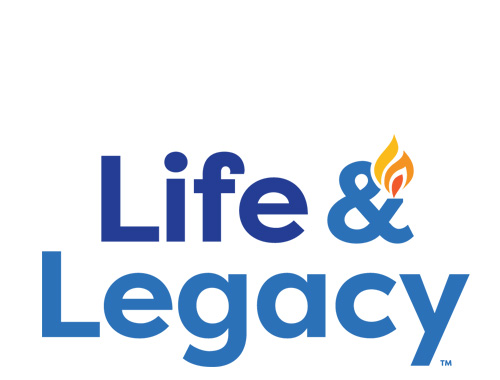Schechter Shavua: September 5, 2025
Building Foundations: How Early Childhood Routines Support Growth and Independence
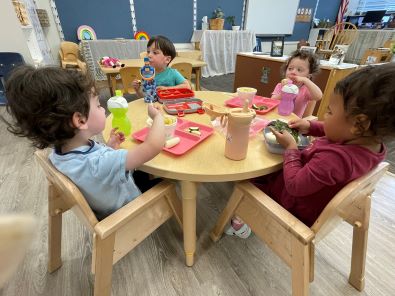 Early Childhood routines are the foundation for young children's learning and growth. In the first weeks of school, simple routines like sitting together for lunchtime teach so much more than just eating—they foster a sense of community, help children develop socialization skills, and encourage independence. Learning to sit in a chair instead of a high chair, for example, supports their physical development and builds confidence. These small but meaningful moments help children understand how to be part of a group, take care of themselves, and feel safe and capable in a new environment. We are honored to help our youngest Schechter students develop and grow!
Early Childhood routines are the foundation for young children's learning and growth. In the first weeks of school, simple routines like sitting together for lunchtime teach so much more than just eating—they foster a sense of community, help children develop socialization skills, and encourage independence. Learning to sit in a chair instead of a high chair, for example, supports their physical development and builds confidence. These small but meaningful moments help children understand how to be part of a group, take care of themselves, and feel safe and capable in a new environment. We are honored to help our youngest Schechter students develop and grow!
A Colorful Review of the Scientific Method
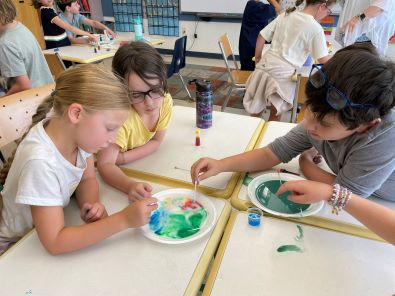 Thethird graders of Alim began their science unit with some milk magic! They reviewed the scientific method (asking questions, making a hypothesis, following the steps of an experiment, and collecting and analyzing data) while seeing how dish soap interacts with milk. They used food coloring to make the invisible visible, then watched as the soap disrupted the fat molecules in milk, causing them to move and swirl the food coloring. The students tested this with different liquids and made up some of their own questions as they experimented.
Thethird graders of Alim began their science unit with some milk magic! They reviewed the scientific method (asking questions, making a hypothesis, following the steps of an experiment, and collecting and analyzing data) while seeing how dish soap interacts with milk. They used food coloring to make the invisible visible, then watched as the soap disrupted the fat molecules in milk, causing them to move and swirl the food coloring. The students tested this with different liquids and made up some of their own questions as they experimented.
Ilanot Students Join Their Shevet Groups!
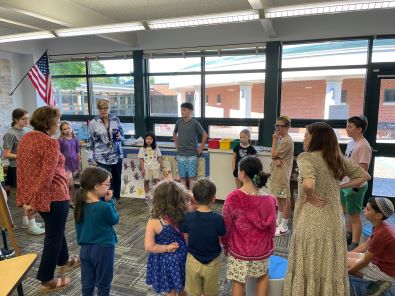 This Wednesday, our Ilanot (Kindergarten) students excitedly joined the Shevet groups they’ll be part of throughout their years at Schechter. The Shevatim are a special part of our community, bringing together students from Kindergarten through 8th grade in mixed-age groups that meet regularly throughout the school year.
This Wednesday, our Ilanot (Kindergarten) students excitedly joined the Shevet groups they’ll be part of throughout their years at Schechter. The Shevatim are a special part of our community, bringing together students from Kindergarten through 8th grade in mixed-age groups that meet regularly throughout the school year.
Each month, Shevet groups gather to celebrate holidays, share accomplishments, teach and learn from one another, and work together on developing a Growth Mindset. These gatherings foster strong cross-grade relationships and a deep sense of community.
At this week’s first meeting, students enjoyed fun icebreakers and got to know the new members of their Shevatim. Because the groups stay together from year to year—welcoming new students in Ilanot and those joining Schechter—the bonds formed are meaningful and lasting.
It’s just one of the many things that makes the Schechter community so special!
First Schoolwide ReLiSh of the Year
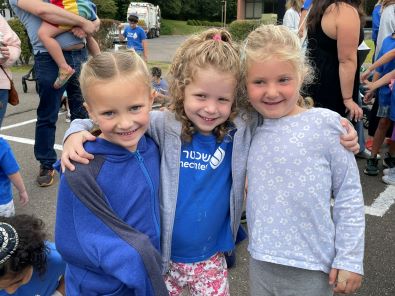
These photos of students -- and some families -- experiencing the joy of our Shabbat ReLiSh are sure to make you smile.
Check them out HERE!
Parashat Ki Teitzei—Share a Story, Build a Society
 Communities fall apart when communal trust dissolves; they thrive when we feel we can rely on each other. This fundamental truth comes into play in an interesting way in this week’s parashah—when we consider the laws of lost objects.
Communities fall apart when communal trust dissolves; they thrive when we feel we can rely on each other. This fundamental truth comes into play in an interesting way in this week’s parashah—when we consider the laws of lost objects.
The Torah talks about the importance of returning lost objects. If we find a wandering sheep, we should bring it to its owner—and if we don’t know who the owner is, our parashah (Deut. 22:1-3) instructs us to take care of it until the owner comes and says, “Has anyone seen my sheep?” The rabbis, when they develop these laws in the Talmud, add an important qualification: if you have no realistic expectation of getting your object back, you forfeit ownership. If you lose a $20 bill in a hallway at Schechter, you have every reason to assume you will get it back—so someone who finds it is obligated to try to return it to you. But if you lose the same $20 bill in the New York subway, it is so unlikely that you will get it back, so you are presumed to have given up hope—and so anyone who finds it gets to keep it.
Why is Schechter different from the New York subway? It’s not really about the number of passers-by. Instead, the difference has to do with our sense of collective trust. At Schechter, we feel connected to each other, and we feel like the members of our community are generally good people. “Oy, some money fell out of my pocket, but I’m sure someone will turn it in.” But in the New York subway, our expectation is entirely dependent on communal trust. Do we think people will take the trouble to turn it in? Do we instinctively feel that New Yorkers are good people, or not? Sadly for the loser, happily for the finder, the trust isn’t there; we presume that anyone who loses money on the subway has given up. (Note that the Tokyo subway has a very strong culture of returning lost objects. This isn’t about human nature; it’s truly about collective trust.)
Mistrust comes from many directions. The popularity of reality TV and true crime shows exposes many of us to horrible stories about horrible people. The media tends to push grim or scary stories—and we snap them up. All of this diminishes our trust in others. As a result, we withdraw, we build higher fences, we stop smiling, and we assume the worst about our broader community.
Those negative stories may be true—but they aren’t the only stories. Every day, people find wallets and turn them in to “lost and found” boxes. Someone slips on ice and five people rush over to help. We know these things happen—but they will never make the front page, or get treatment in a reality TV show. But imagine if we shared those stories just as widely! How might that affect our sense of community? Each helpful or friendly interaction shapes how we look at the world—it even determines whether we get our $20 back or not.
Shabbat shalom,
Rabbi Jonathan Berger
Head of School
Questions for the Shabbat table:
- Taking care of someone else’s sheep could get expensive! How do you think those expenses should get covered?
- A baseline of communal trust doesn’t mean we should be careless. How do you balance vigilance with a sense of community?
Solomon Schechter Day School
of Greater Hartford
26 Buena Vista Road
West Hartford, CT 06107
© Solomon Schechter Day School of Greater Hartford | Site design Knowles Kreative

